- We, of Henry Ford Community College, are dedicated to the education and enrichment of our students and community. As a comprehensive community college with a diverse student population, we value teaching and learning. To prepare our students for a rapidly changing world and workplace, we are committed to providing knowledge, communication skills, and cultural opportunities. We foster critical thinking, creativity, integrity, and self-esteem.
School Highlights
Henry Ford College serves 15,739 students (32% of students are full-time).
The college's student:teacher ratio of 24:1 is higher than the state community college average of 19:1.
Minority enrollment is 52% of the student body (majority Black), which is more than the state average of 40%.
Quick Stats (2025)
- Enrollment: 15,739 students
- In-state tuition: $4,132
- Out-state tuition: $4,252
- Student:teacher ratio: 24:1
- Minority enrollment: 52%
- Source: Integrated Postsecondary Education Data System (IPEDS)
Top Rankings
Henry Ford College ranks among the top 20% of public schools in Michigan for:
Category
Attribute
Affordability
Diversity
Community Size
School Overview
The teacher population of 659 teachers has stayed relatively flat over five years.
Henry Ford College
(MI) Community College Avg.
Carnegie Classification
Baccalaureate/Associate's Colleges: Associate's Dominant
Baccalaureate/Associate's Colleges: Associate's Dominant
Institution Level
Four or more years
At least 2 but less than 4 years
Institution Control
Public
Public
Total Faculty
659 staff
224 staff
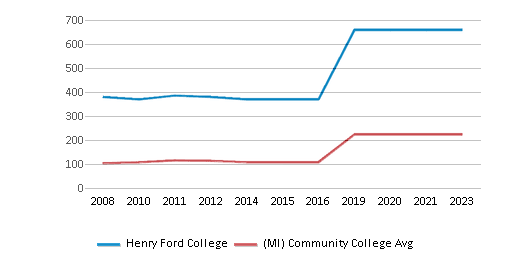
School Calendar
Student Body
The student population of Henry Ford College has grown by 29% over five years.
The student:teacher ratio of 24:1 has increased from 17:1 over five years.
The Henry Ford College diversity score of 0.74 is more than the state average of 0.60. The school's diversity has grown by 20% over five years.
Total Enrollment
15,739 students
2,154 students
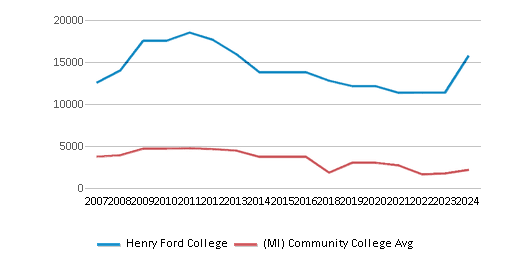
Student : Teacher Ratio
24:1
19:1
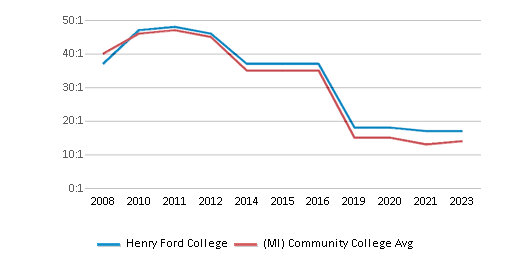
# Full-Time Students
5,008 students
878 students
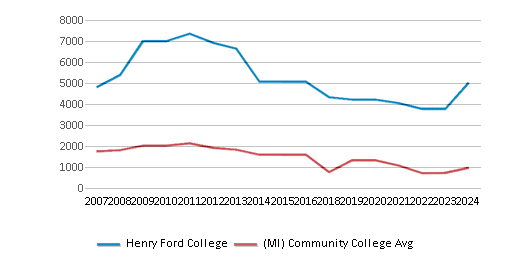
# Part-Time Students
10,731 students
1,714 students
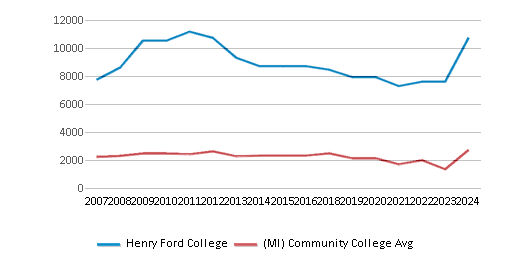
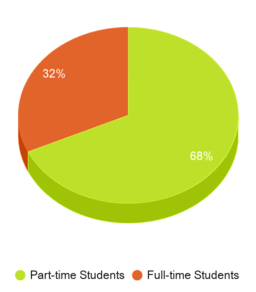
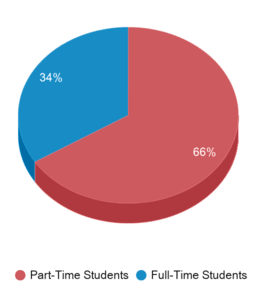
# Enrollment Undergraduate
157 students
225 students
# Full-Time Undergraduate Students
5,008 students
889 students
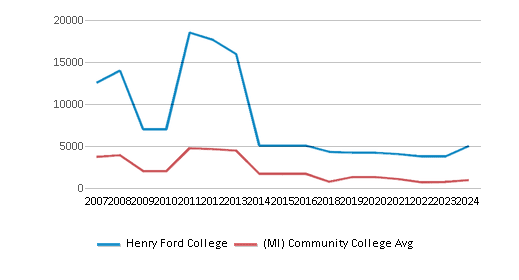
# Full-Time Graduate Students
n/a
4 students
# Part-Time Undergraduate Students
10,731 students
1,714 students
# Part-Time Graduate Students
n/a
4 students
Total Dormitory Capacity
n/a
178 students
% American Indian/Alaskan
n/a
n/a
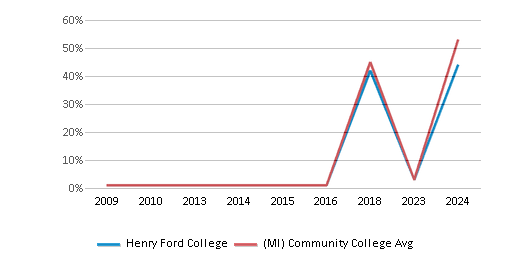
% Asian
3%
4%
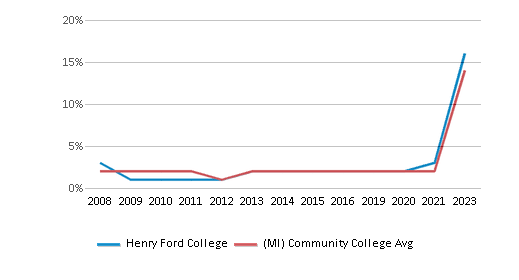
% Hispanic
5%
7%
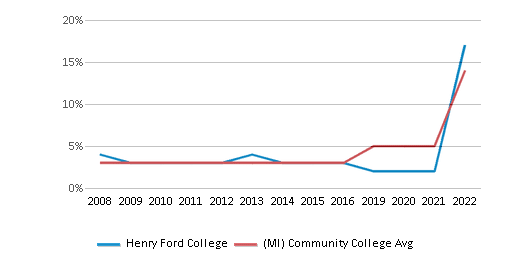
% Black
15%
16%
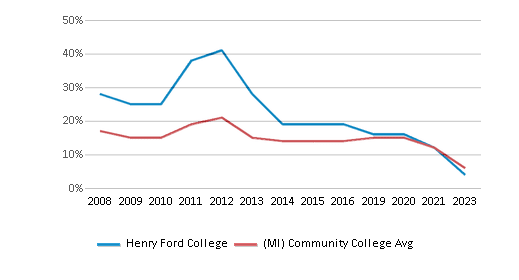
% White
48%
60%
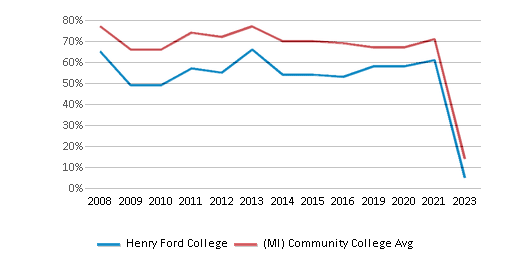
% Hawaiian
n/a
1%
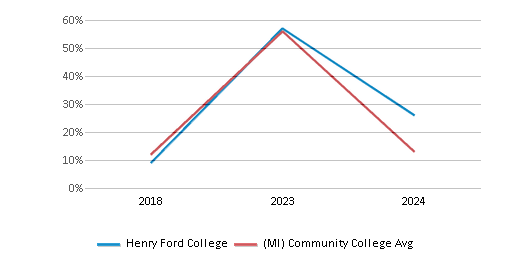
% Two or more races
4%
4%
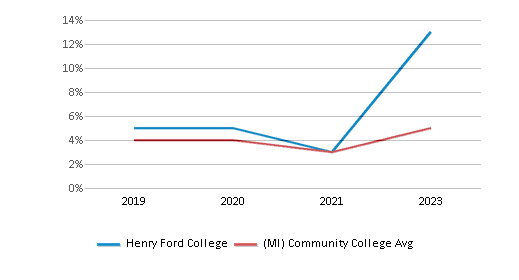
% Non Resident races
2%
2%
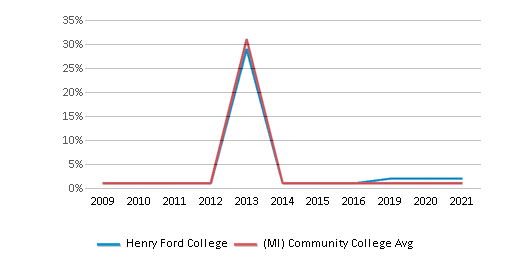
% Unknown races
24%
6%
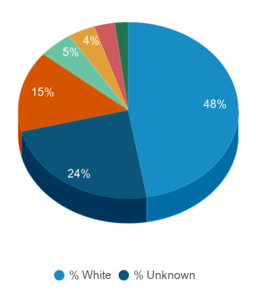
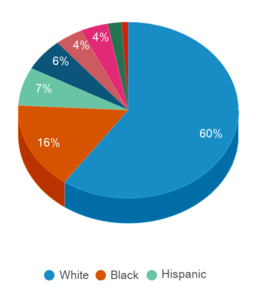
Diversity Score
0.74
0.60
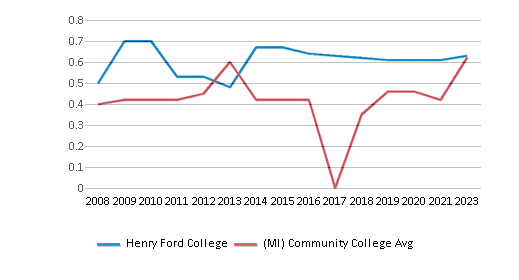
College Completion Rate (Students who graduate in less than 4 years)
6%
14%
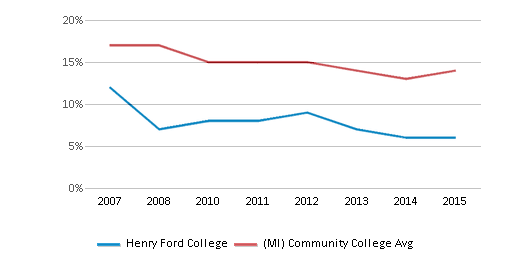
College Completion Rate (Students who graduate in 4 years or more than 4 years)
0.1142%
0.2071%
Average Graduate Earnings (10 Years)
$34,500
$30,700
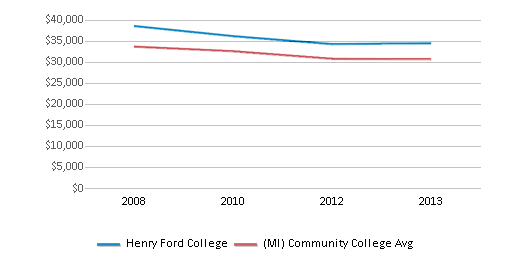
Tuition and Acceptance Rate
The public in-state tuition of $4,132 is less than the state average of $4,952. The in-state tuition has declined by 17% over four years.
The public out-state tuition of $4,252 is less than the state average of $6,896. The out-state tuition has declined by 38% over four years.
In-State Tuition Fees
$4,132
$4,952
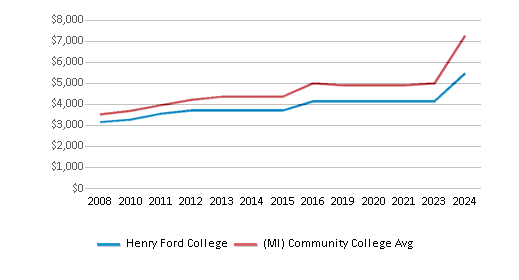
Out-State Tuition Fees
$4,252
$6,896
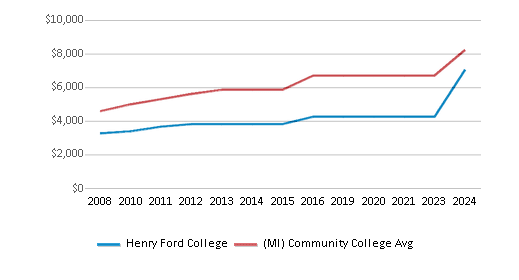
Tuition Notes
Out of District $130
% Students Receiving Some Financial Aid
82%
89%
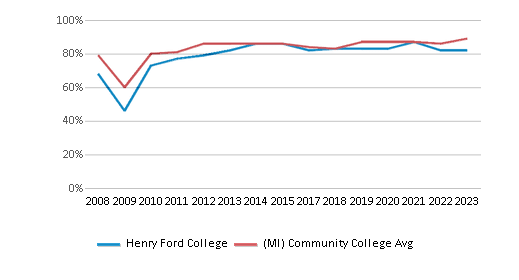
Median Debt for Graduates
$15,276
$11,704
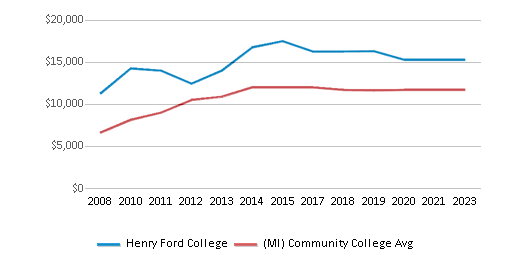
Median Debt for Dropouts
$5,500
$5,500
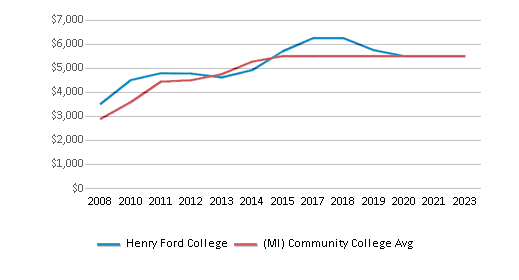
Acceptance Rate
n/a
98%
Source: 2024 (or latest year available) Integrated Postsecondary Education Data System (IPEDS) , School Administrators
School Notes
- HFCC has more than 50 years experience delivering specialized training to business and industry. It was the first community college in the nation to work with union and management leaderships to design and deliver joint training programs. The corporate training division of the college has served more than 68,000 employees, 575 different businesses and nearly 400 individuals in workplace training programs. The staff of the University Transfer, Advising and Career Counseling Center can assist you with selecting a career path and planning the courses necessary to complete your educational goals. Whether your goal is to transfer to a university or complete a program that will prepare you to enter the workforce immediately, HFCC's licensed professional counselors can help you. At Henry Ford Community College, we believe in rewarding academic excellence by helping finance students' education through scholarships. They are made possible by the HFCC Trustees, the HFCC Foundation Board, generous alumni, other friends of the College, local businesses, organizations, faculty, staff, and those who believe in your future and in the value of education. Henry Ford Community College is accredited by the The Higher Learning Commission, a commission of the North Central Association of Colleges and Schools and the Michigan Commission on College Accreditation.
Frequently Asked Questions
How much does Henry Ford College cost?
Henry Ford College's tuition is approximately $4,132 for In-State students and $4,252 for Out-State students.
What is Henry Ford College's ranking?
Henry Ford College ranks among the top 20% of community college in Michigan for: Least expensive tuition, Diversity in US community colleges and Largest student body.
Recent Articles

Obtaining Your Bachelor's Degree at a Community College
Explore the evolving landscape of community colleges offering bachelor's degrees, addressing affordability, accessibility, and workforce needs.

A to Z of Community College Certificates and Courses
From business and healthcare to technology and skilled trades, the article showcases the breadth of options available to students seeking to enhance their knowledge, develop new skills, or pursue career advancement.

What is a Community College?
This comprehensive guide explains what a community college is, its history, and its role in higher education. It covers the types of programs offered, differences from four-year colleges, benefits of attending, and important considerations for prospective students, providing valuable insights for those exploring educational options.









